We found the best storage option for the highest quality bodycare to be Miron violet glass. What are the benefits of using Miron glass over other forms of packaging?
A cherry tomato was stored in white glass and another one in Miron violet glass, then kept at room temperature where sunlight could reach it. After 7 months, the tomato stored in Miron glass showed no loss of colour and no signs of decay or drying out, whereas the tomato stored in white glass showed obvious signs of decay.²
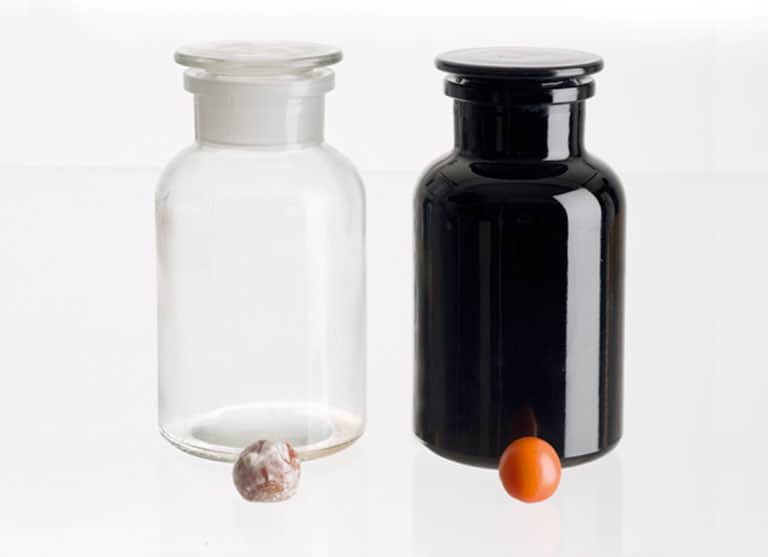
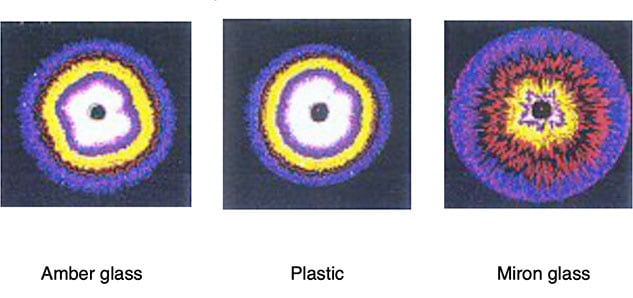
In 1997, the Institute of Dr. D. Knapp tested fresh spirulina tablets from the same batch by storing them in different containers. After 4 weeks, the sample in Miron glass showed a strong and dynamic energy field, while the other samples in amber glass and plastic showed obvious signs of energy loss.²
Chives were stored for 3 months in several types of glass (white, brown, and violet). After 2 months, the visible quality change was recorded with photographs, and the difference in smell determined in a blind test with volunteers. The chive samples that were exposed to the sun had bleached in brown and white glass. The sample stored in Miron glass showed no colour change and the smell was stronger and fresher.²
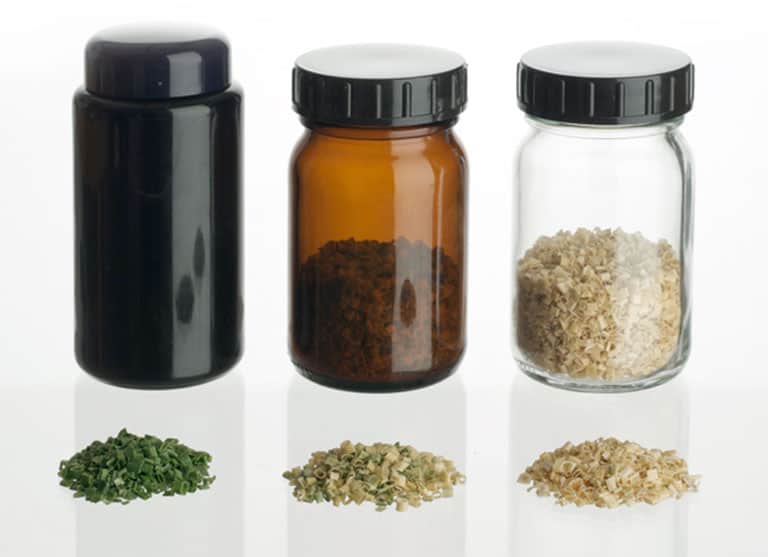
In a 2014 article authored by Hugo Niggli, it is stated that “As shown by the history of light, photons participate in most atomic and molecular interactions. Recent biophysical research has measured low light impulses, so-called biophotonic emission, in cells and biological tissue.”³
Miron violet glass is a unique biophotonic glass that naturally filters the spectrum of visible sunlight, only allowing through infrared, violet, and ultraviolet light, which are thought to improve and energise the contents for the benefit of our health.⁴
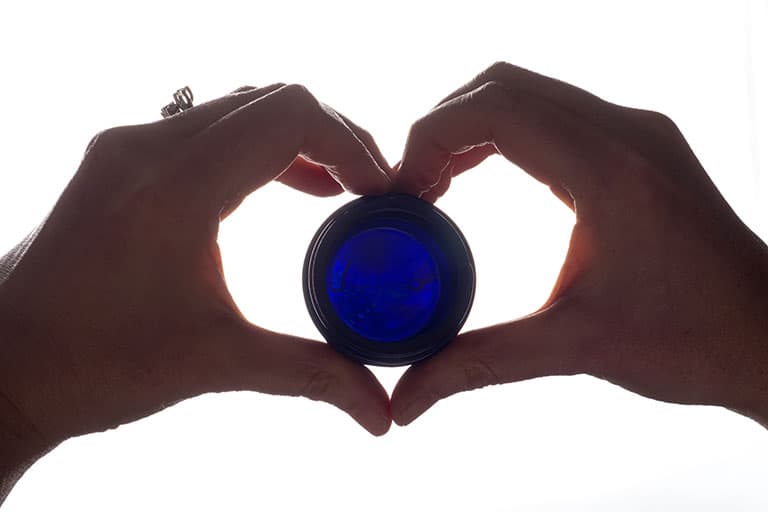
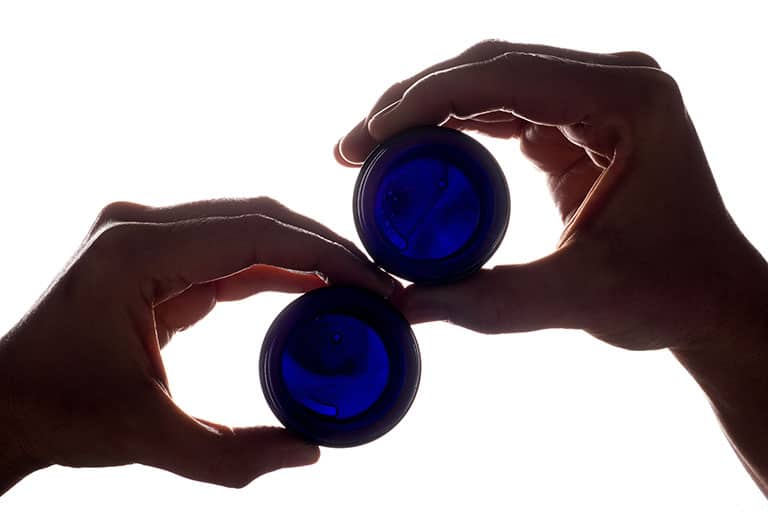
Miron glass is ideal for natural products with many benefits, such as:
To conclude, Miron glass is a superior choice as a packaging option.